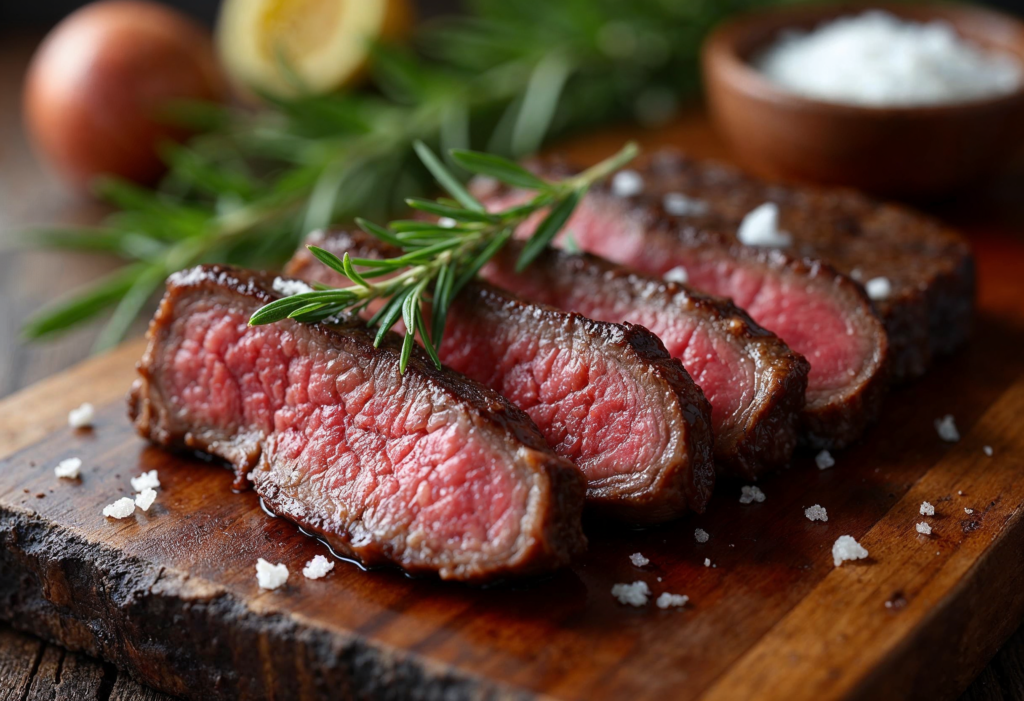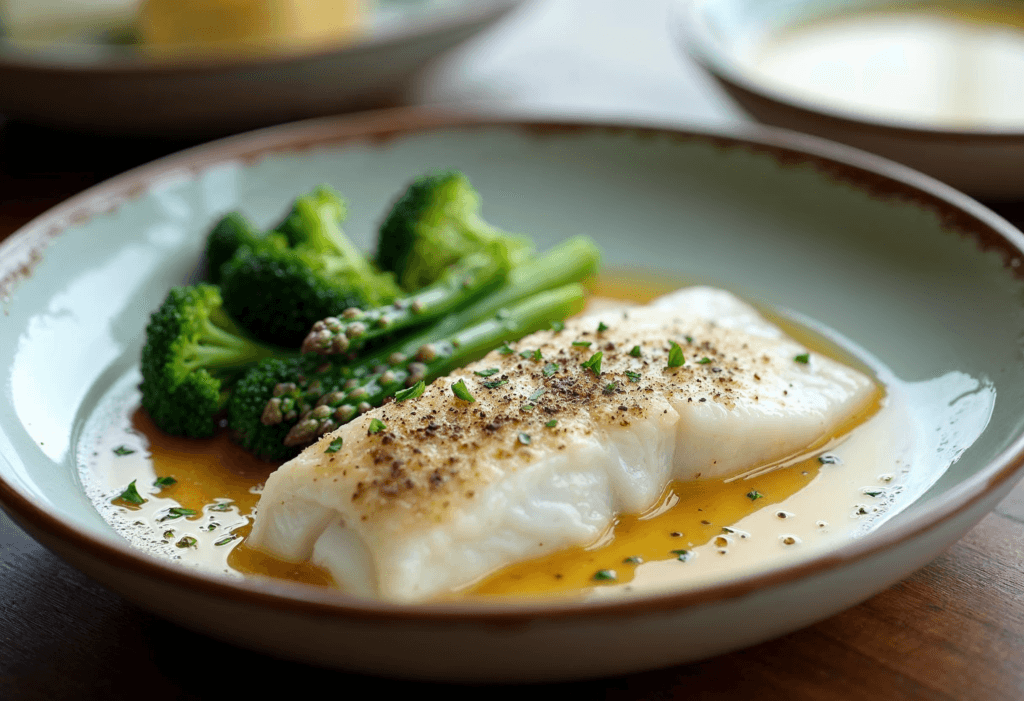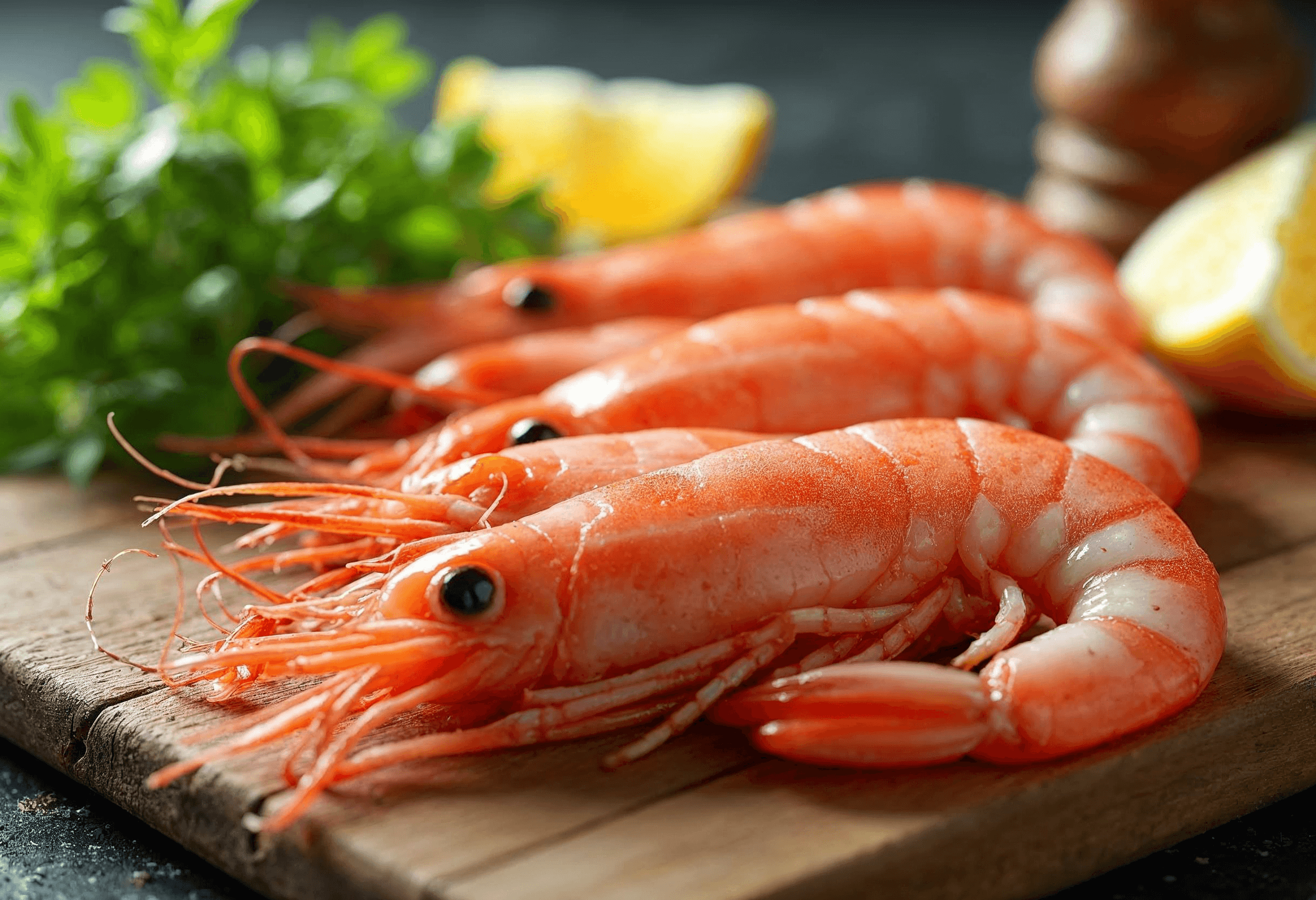Taurine—ever heard of it? If you’ve been curious about this seemingly mysterious nutrient, you’re in the right place. It’s a powerhouse in the human body, working behind the scenes to keep everything running smoothly. But here’s the burning question: is taurine destroyed by cooking? 🤔
Let’s dive deep into this topic, explore how taurine reacts to heat, and discover whether your favorite cooking methods are secretly robbing you of this essential compound. Grab your apron because we’re going to blend science, nutrition, and practical cooking tips all in one!
Introduction: What is Taurine and Why is it Important?
First things first—what is taurine, and why does it matter? Taurine is a type of amino acid, but it’s a bit special. Unlike essential amino acids, taurine isn’t used to build proteins. Instead, it plays unique roles in various bodily functions like brain function, heart health, and hydration balance.
Here’s the kicker: taurine is found naturally in foods, particularly in meat, fish, and dairy. It’s especially abundant in seafood like shrimp, tuna, and scallops. If you’re on a plant-based diet, don’t worry—you can still get taurine from supplements.
“Taurine is often referred to as a ‘conditionally essential nutrient.’ Your body can produce some taurine, but under stress or illness, dietary intake becomes crucial.”
In short, taurine is like the behind-the-scenes crew for a Broadway show—without it, everything starts to fall apart. So naturally, we want to ensure it stays intact when we prepare our meals.
The Role of Taurine in the Human Body
Taurine may not be as famous as other nutrients like vitamin C or iron, but trust me—it’s no slouch. Here’s a quick breakdown of its vital roles:
Essential Functions of Taurine
- Supports Heart Health ❤️
Taurine helps maintain healthy heart function by regulating blood pressure and supporting proper muscle contraction. In fact, low taurine levels have been linked to heart issues, especially in cats (yes, even animals need taurine!). - Boosts Brain Function 🧠
Ever feel mentally foggy? Taurine supports neurotransmitter regulation, which helps improve focus and cognitive performance. - Balances Electrolytes and Hydration 💧
Like sodium and potassium, taurine helps keep your body’s fluid balance in check. It’s why energy drinks often contain taurine—they aim to keep you hydrated during strenuous activity. - Fights Oxidative Stress
Taurine is an antioxidant. In plain English? It helps fight damage caused by free radicals, which are harmful molecules that speed up aging and disease.
Natural Sources of Taurine
So, where can you find taurine in your diet? Here’s a quick list of taurine-rich foods:
- Seafood 🐟: Shrimp, tuna, and oysters are taurine superstars.
- Meat 🥩: Beef, chicken, and lamb pack a good amount.
- Dairy Products 🧀: Milk and cheese offer small but valuable taurine content.
Unfortunately, taurine isn’t found in plant foods, which means vegetarians and vegans need to rely on fortified foods or taurine supplements.

Does Cooking Destroy Taurine?
Now for the million-dollar question: Does cooking actually destroy taurine? Well, it depends—on the cooking method, temperature, and time. Let’s break it down.
How Heat Affects Taurine: The Science
Cooking causes chemical changes in food, especially when heat is applied for extended periods. Taurine, like other nutrients, is heat-sensitive to a degree. However, taurine isn’t completely destroyed—it’s more likely to leach into water when boiling or evaporate when exposed to extremely high temperatures.
Think of it this way: cooking is like a game of Jenga. As you heat food, certain nutrients start “falling out” one by one. Taurine is one of those players that can fall if you’re not careful.
Factors Influencing Taurine Loss During Cooking
Several factors determine how much taurine you lose during cooking:
- Temperature: The higher the temperature, the greater the nutrient loss. Frying and grilling, which involve high heat, are the worst offenders.
- Cooking Time: The longer you cook something, the more taurine degrades or leaches out. Quick cooking methods are your best friend here.
- Water Exposure: Boiling and steaming cause taurine to seep into the water. Unless you’re consuming the broth (like in soups), you lose a good chunk of taurine.
“The way you cook your food can make or break its nutritional value. Heat, water, and time are the biggest culprits when it comes to nutrient loss.”
Comparing Different Cooking Methods and Their Effects on Taurine
Let’s take a closer look at popular cooking methods and how they impact taurine:
Boiling and Steaming
Boiling and steaming are gentle on taurine, but there’s a catch. Taurine leaches into the water, meaning you lose it unless you drink the broth. That’s why soups and stews are great options for retaining taurine content.
Frying and Grilling
Frying and grilling involve high temperatures, which can degrade taurine more quickly. While your steak might taste amazing on the grill, some taurine will likely be lost in the process.
Baking and Roasting
Baking and roasting fall somewhere in between. While heat exposure is significant, the lack of water means taurine loss is less compared to boiling.
So what’s the takeaway? Cooking isn’t the villain here—your choice of method determines how much taurine stays or escapes.
To preserve taurine, focus on nutrient-friendly cooking techniques like steaming, stir-frying, or sous vide. If you’re looking for meal ideas, check out The Ultimate Guide to Weeknight Dinner Recipes for inspiration.
Common Problems: Taurine Loss and Nutrient Deficiency
Taurine loss during cooking isn’t just a culinary curiosity—it can contribute to nutrient deficiencies in some people. Let’s explore this issue further.
Taurine Deficiency: Symptoms and Risks
While taurine deficiency is rare in healthy individuals, certain conditions can increase your risk:
- Poor Diet: A diet lacking in taurine-rich foods, especially seafood and meat, can cause low levels.
- Chronic Illness: Conditions like liver disease and heart failure may reduce taurine production.
- Stress and Physical Activity: Athletes burn through taurine faster, making dietary intake more important.
Signs of taurine deficiency include:
- Fatigue and muscle weakness
- Brain fog and poor concentration
- Vision issues
- Heart irregularities
In severe cases, taurine deficiency has been linked to cardiomyopathy—a condition where the heart struggles to pump blood efficiently.
Cooking Techniques That Reduce Taurine Content
If you’re concerned about taurine loss, consider these cooking pitfalls:
- Overcooking: Leaving food on high heat for too long is a surefire way to degrade taurine.
- Discarding Cooking Water: If you boil meat or seafood, don’t throw away the broth—that’s where the taurine hides.
- Excessive Frying: High-heat frying can be tasty but ruthless on taurine content.
To sum it up, taurine is tough but not indestructible. By understanding how heat impacts taurine, you can tweak your cooking habits to keep more of this vital nutrient intact.
What’s Next?
We’ve just covered what taurine is, why it’s important, and how cooking affects it. In the next part, I’ll show you solutions for retaining taurine, the best cooking methods, and practical tips to ensure you’re getting enough taurine in your diet.
Stay tuned! 🍲

Solutions to Retain Taurine in Cooked Foods
By now, you know that taurine can be degraded or leached out during cooking. But don’t worry—there are several ways to preserve taurine in your meals without compromising on taste or nutrition. Let’s explore some practical solutions that’ll help you retain more of this powerhouse nutrient.
Optimal Cooking Methods to Preserve Taurine
Not all cooking methods are equal when it comes to nutrient preservation. Here are the best ways to retain taurine in your food:
1. Quick, Gentle Cooking Methods
The less time food spends on heat, the better. Here are two excellent options:
- Steaming: This gentle method prevents taurine from being exposed to direct, harsh heat. Plus, there’s no water loss if you consume everything.
- Stir-frying: Stir-frying involves quick cooking at medium-high heat with minimal oil. By keeping the cooking time short, you can preserve more taurine.
2. Use Broth-Based Cooking
When boiling meat or seafood, the taurine often seeps into the water. Instead of discarding the liquid, use it as a base for soups, stews, or sauces. Not only do you retain the taurine, but you also get flavorful, nutrient-packed dishes.
“Soup isn’t just comfort food—it’s a smart way to preserve and enjoy nutrients like taurine that might otherwise get lost during cooking.” 🍲
3. Sous Vide Cooking
Sous vide, a fancy-sounding method, involves vacuum-sealing food and cooking it at low temperatures in a water bath. This technique keeps nutrients like taurine intact because the food is never exposed to excessively high heat. It’s slow, but the results are worth it!
4. Opt for Raw or Lightly Cooked Foods
Whenever possible, consume taurine-rich foods like seafood or meat in raw or lightly cooked forms. Dishes like sushi, carpaccio, and ceviche are delicious examples that minimize taurine loss.
If you want to focus on cooking seafood, one of the best ways to get taurine, try this delicious Yellowtail Recipe: A Guide to Cooking Perfection. Yellowtail is rich in taurine and cooks beautifully with gentle methods like steaming or broiling.
Dietary Tips to Ensure Sufficient Taurine Intake
Cooking methods aren’t the only factor—your overall dietary habits play a huge role in maintaining healthy taurine levels. Here are some easy tips:
- Eat More Seafood: Fish and shellfish are taurine powerhouses. Incorporate tuna, shrimp, and oysters into your weekly meals.
- Consume Organ Meats: Liver and heart are packed with taurine, so don’t overlook these nutrient-rich options.
- Include Broths and Stocks: Homemade bone broths not only taste great but also ensure you’re consuming taurine-rich liquid from slow-cooked meats.
- Snack on Dairy: Milk and cheese might not have as much taurine as seafood, but they’re still decent sources.
Supplements as an Alternative to Maintain Taurine Levels
If you’re unable to get enough taurine through your diet—whether due to lifestyle choices, dietary restrictions, or preferences—taurine supplements are a reliable option.
- Who Should Consider Taurine Supplements?
- Vegans and vegetarians (since taurine is mostly in animal-based foods)
- Athletes or bodybuilders who need extra taurine for performance
- Individuals with taurine deficiency or certain medical conditions
- How to Take Taurine Supplements
Taurine supplements are available in powder, capsule, or tablet forms. The typical dose ranges from 500 mg to 2000 mg per day. However, it’s always best to consult with a healthcare professional before starting any supplementation.
“Taurine supplements are a great fallback option when diet alone doesn’t meet your needs. Just think of them as your safety net.” 💊
Foods High in Taurine: Raw vs Cooked Content
To truly understand the impact of cooking on taurine levels, it’s helpful to compare foods in their raw versus cooked states. Let’s break this down by food group:
Seafood and Meat: The Primary Sources of Taurine
- Fish 🐟
- Raw: Raw tuna, salmon, and shrimp are incredibly rich in taurine. Sushi lovers, rejoice!
- Cooked: Boiling or steaming reduces taurine slightly but retains more than frying or grilling.
- Meat 🥩
- Raw: Beef, chicken, and lamb contain significant taurine levels.
- Cooked: Cooking methods like roasting and stir-frying help minimize taurine loss compared to high-heat grilling.
- Shellfish 🦐
- Shrimp, scallops, and oysters are taurine superstars. These are best enjoyed lightly steamed or consumed raw in dishes like ceviche.
How Much Taurine Do You Get From Raw vs Cooked Foods?
Here’s a quick comparison of taurine content (approximate values):
| Food | Raw (mg/100g) | Boiled (mg/100g) | Grilled/Fried (mg/100g) |
|---|---|---|---|
| Shrimp | 150 mg | 130 mg | 90 mg |
| Tuna | 200 mg | 180 mg | 120 mg |
| Beef | 50 mg | 45 mg | 30 mg |
| Chicken | 40 mg | 38 mg | 25 mg |
As you can see, boiling retains more taurine than frying. High-heat cooking methods can cut taurine levels by nearly 50%.
Myths and Facts About Cooking and Taurine
There’s a lot of confusion surrounding taurine and its stability during cooking. Let’s clear up some common myths:
Myth: Cooking Always Destroys Nutrients
Fact: Cooking doesn’t always “destroy” nutrients; it often just redistributes them. For example, taurine might leach into the cooking water, but it’s not gone if you consume the broth.
Myth: Raw Food is Always Better
Fact: While raw foods retain more taurine, that doesn’t mean cooked foods are nutritionally void. Light cooking methods like steaming and sous vide help preserve taurine while making food safer and easier to digest.
Misconceptions About Taurine Stability
Some people think taurine is extremely fragile. While it’s heat-sensitive, it’s not as volatile as certain vitamins (like vitamin C). By tweaking your cooking methods, you can retain plenty of taurine without stressing out.
What’s Next?
We’ve now covered the best ways to retain taurine, practical cooking tips, and how raw vs cooked foods compare. In the final part, I’ll share scientific studies, expert opinions, and FAQs to wrap up this deep dive into taurine and cooking.
Stay with me—there’s more valuable insight coming your way! 🔍
Scientific Studies on Taurine and Cooking
When it comes to taurine and its behavior under heat, science has done a pretty good job at answering our burning questions. Several studies have shown that while cooking does reduce taurine levels, the extent of this loss depends on factors like cooking time, temperature, and method.
Key Research Findings
- Taurine Leaches Into Water During Boiling
Studies show that taurine isn’t destroyed but rather leaches into the cooking water. For example, boiling fish or meat can reduce taurine levels in the solid food by up to 50%, but the taurine remains in the broth. - Frying Reduces Taurine More Than Other Methods
Research indicates that frying, grilling, or roasting at high temperatures leads to a significant reduction in taurine. In contrast, methods like steaming and sous vide cooking preserve more of the nutrient because they involve lower heat and shorter cooking times. - Shellfish Retains Taurine Better Than Meat
Shellfish like shrimp and scallops retain taurine more effectively compared to meats like beef or chicken, even when cooked. This is likely due to their naturally high taurine content.
“Cooking doesn’t destroy taurine outright, but high-heat methods and discarding cooking water can significantly reduce the taurine content in your meals.”
What Experts Say About Cooking and Taurine Preservation
Nutrition experts emphasize that taurine loss is manageable with proper cooking techniques. Here’s what they recommend:
- Prioritize quick-cooking methods like steaming and stir-frying.
- If boiling food, consume the cooking liquid to ensure you don’t miss out on taurine.
- Include raw or lightly cooked seafood in your diet when possible, like sushi or ceviche.
Ultimately, it’s about finding a balance between food safety, flavor, and nutrient preservation.
FAQs: Taurine and Cooking
Still have questions? Let’s address some of the most commonly asked questions about taurine and cooking.
Can Taurine Be Completely Destroyed?
No, taurine isn’t completely destroyed during cooking. It’s more likely to leach into water or degrade slightly at high temperatures. By using gentle cooking methods, you can retain most of the taurine in your food.
What is the Best Way to Preserve Taurine in Food?
The best methods to preserve taurine include:
- Steaming
- Stir-frying
- Sous vide cooking
- Boiling (as long as you consume the broth)
Avoid high-heat methods like deep-frying or grilling if you want to maximize taurine retention.
Are There Foods That Naturally Retain More Taurine After Cooking?
Yes! Seafood like shrimp, tuna, and scallops tend to retain more taurine compared to meats like chicken or beef, even after being cooked. This is because they start with much higher taurine levels.
Do Vegetarians and Vegans Need to Worry About Taurine?
Since taurine is primarily found in animal-based foods, vegetarians and vegans may need to consider taurine supplements or consume taurine-fortified foods. Your body does produce some taurine naturally, but supplementation may be necessary for certain individuals.
Conclusion: Key Takeaways for Retaining Taurine in Your Diet
Let’s wrap this up with the most important takeaways:
- Cooking Does Reduce Taurine Levels: Heat, water, and time can cause taurine loss, but it’s not all doom and gloom.
- Preserve Taurine With Smart Cooking: Opt for steaming, stir-frying, and sous vide cooking to retain as much taurine as possible. If you boil food, use the broth!
- Focus on Taurine-Rich Foods: Seafood, shellfish, and organ meats are the best natural sources of taurine.
- Supplements Are an Option: For those who can’t meet their taurine needs through food, supplements provide a reliable backup.
For broader nutrition insights, consider reading about fish and nutrient retention on trusted sources like Healthline.
“Cooking doesn’t have to steal the nutrients from your food. By being mindful of your cooking methods, you can keep taurine—and other nutrients—right where they belong: on your plate.”
Final Thoughts: Balancing Cooking and Nutrient Preservation
At the end of the day, taurine is just one piece of the nutrition puzzle. While cooking does impact its levels, it’s not something you need to lose sleep over. By following the tips in this guide—like embracing gentle cooking methods and eating taurine-rich foods—you can ensure your body gets the taurine it needs.
Think of it this way: Cooking is like walking a tightrope. With a little practice and balance, you can enjoy flavorful, nutrient-rich meals without sacrificing taurine. So go ahead, fire up that stove, and cook smart. Your body (and taste buds) will thank you! 🍽️
What’s Next?
If you loved this guide, share it with friends who care about nutrition. And remember—small tweaks in your cooking routine can lead to big improvements in your health. Stay curious, stay informed, and happy cooking! 👩🍳✨

Taurine Cooking Guide
Ingredients
Method
- To maximize taurine retention, consider steaming, stir-frying, or sous vide for preparation.
- If boiling seafood or meat, consume the cooking liquid to keep taurine intact.
- Avoid high-heat methods like frying or grilling which can significantly reduce taurine content.
